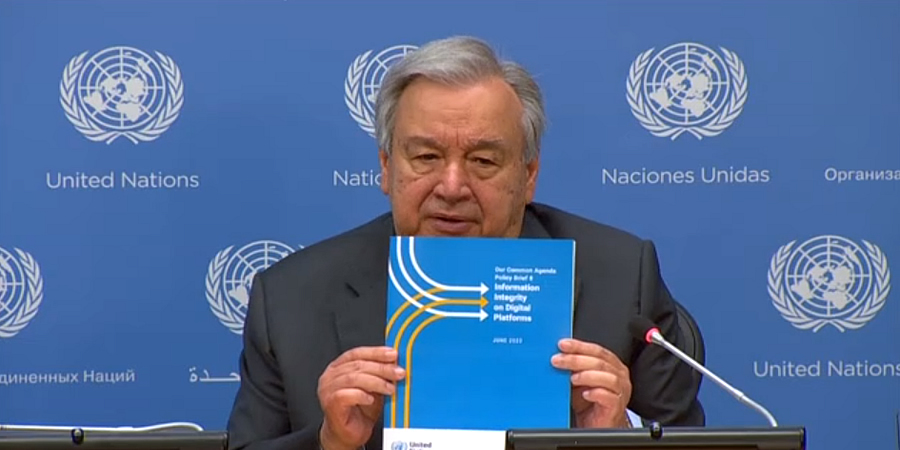The sudden increase in the volume of misinformation generated by artificial intelligence tools has grabbed everyone’s attention as it makes the rounds on social media.
UN Chief Antonio Guterres has expressed concern over artificial intelligence’s capacity to produce misinformation and has subsequently proposed an international code of conduct to stem the "grave" harm being done by digital platforms rife with misinformation.
Guterres said he endorsed the idea for the creation of an AI watchdog body similar to the International Atomic Energy Agency (IAEA), pointing out that "only member states can create it, not the Secretariat of the United Nations."
Also read: Power on the Page: Why Internet Firms Must Rein In Their Content
He added that while alarm bells over AI were "deafening," they must not "distract us from the damage digital technology is already doing to our world."
"The proliferation of hate and lies in the digital space is causing grave global harm now," Guterres told a news conference while presenting a policy brief on the subject.
Digital platforms have brought many benefits, from supporting communities in times of crisis and struggle, to helping to mobilize global movements for racial justice and gender equality. Yet these same digital platforms are being misused to subvert science and spread disinformation and hate, fuelling conflict, threatening democracy and human rights, and undermining public health and climate action.
"It is fueling conflict, death and destruction now. It is threatening democracy and human rights now."
Guterres said a "United Nations Code of Conduct for information integrity on digital platforms" was being developed ahead of the UN's "Summit of the Future" slated for next year.
His policy brief, which will feed the code of conduct, includes a slew of proposals, including that advertisers implicated in monetizing harmful content take full responsibility for their spending.
"Disinformation and hate should not generate maximum exposure and massive profits," Guterres said.
While unleashing social and cultural transformation globally, online platforms have also "exposed a darker side," he warned.
Also read: Saudi Supports ITU in Developing Global AI Readiness Frameworks
"The ability to disseminate large-scale disinformation to undermine scientific facts poses an existential risk to humanity," he insisted, referring to their risk to democratic institutions and human rights.
He said that the code of conduct should be based on a commitment to information integrity, human rights and support for independent media.
"We must learn from the mistakes of the past. Digital platforms were launched into the world without sufficient awareness or assessment of the potential damage to societies and individuals," Guterres said.
"The era of Silicon Valley's 'move fast and break things' philosophy must be brought to a close."
Also read: How Artificial Intelligence Will Transform Businesses in 2023
Also read: How artificial intelligence is revolutionizing telecoms











